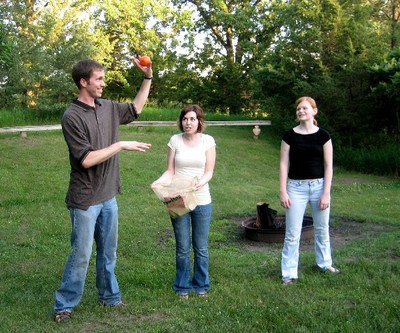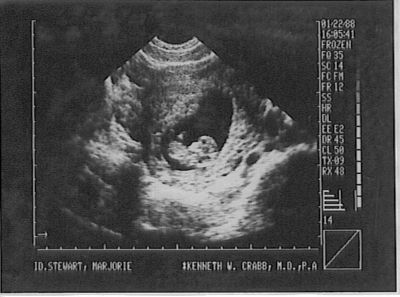This is a post I have written in response to one written by Dave Christison which you can read here, with a follow up here. Dave did a great job in pointing out many questions that arise when considering this issue of whether women can and should be elders in a church or ordained as pastors. He even phoned me after I left a comment on his post and we had a wonderful conversation, and I was greatly encouraged to respond to his post by writing this.
I am very sensitive of the fact that this can be a heated issue, and as a long-time elder and recently ordained pastor in my church I obviously have strong feelings of my own. More important than feelings, however, is what the Word of God says, and I believe scripture is fully consistent with this calling. In fact, the church I attend is very conservative in reading, interpreting and applying God’s word in our lives. Our practice of ordaining men and women who are called is based on this word and not on worldly notions of what is “fair” or politically correct. Yet if scripture is our guide, aren’t there verses (especially in 2 Timothy and I Corinthians 11 and 14) that clearly take a contrary position?
The short answer is no. Even better, the longer answer doesn’t require a lot of linguistic gymnastics or stretched rationalizations. In order to make this more interesting and enlightening I will rely heavily on a small tome that was given to me by sister at my ordination last December. The author puts it clearly and succinctly, in a way I could hardly hope to. The book is entitled Ordaining Women, by Rev. B.T. Roberts, A.M., written in 1891 (yes, that was 1891), well before what might be recognized as secular feminism. The book does an excellent job of presenting the biblical case for women in leadership.
This is what Rev. Roberts has to say about his work:
I have purposely avoided all appeals to sentiment and to “the spirit of the age,” and based my arguments mainly on the Word of God. Where texts have been interpreted contrary to the generally received meaning, reasons have been given, which, I trust, will be found satisfactory. I have endeavored to make everything plain.
I ask as a special favor of those who have decided not to agree with the position I have taken that they will read before they condemn. The subject is worthy of patient and prayerful investigation.
I have no misgivings as to the truth of what I have written, nor evil forebodings of the consequences that will result if the views herein advocated come to be generally received. I only ask that truth may prevail, Christ be glorified, and His Kingdom be advanced on earth.
I am going to begin by examining what went on in the beginning on the sixth day. Quoting from Rev. Roberts:
Woman was created, not as the servant of man, but as his companion, his equal. “And the Lord God said: It is not good that the man should be alone; I will make him an help meet for him.” –Gen. 2:18
Dr. Adam Clarke, in his comment on the verse, says: “I will make him a help meet for him; ezer kenegedo, a help, a counterpart, of himself, one formed from him, and a perfect resemblance of his person. If the word be rendered scrupulously literally, it signifies one like, or as himself, standing opposite to or before him. And this implies that the woman was to be a perfect resemblance of the man, possessing neither inferiority nor superiority, but being in all things like and equal to himself.”
The dominion which God gave to man at the creation was a joint dominion. It was given to the woman equally as to the man.
Nothing was said of the subjection of woman before the fall. After that sad event, it was said to the woman, as a part of her punishment: “Thy desire shall be to thy husband and he shall rule over thee.” – Gen. 3:16.
(All italics copied from the original.)
If Jesus coming and dying for us has freed us from the curse of the law I have no other course but to believe that the above punishment meted to Eve was included in the curse that we were freed from. We can’t have been freed and then go back and say it doesn’t include this one area. Just how free do we want to be? Personally, I want all the freedom God has to offer.
Ephesians 5 says we should submit to one another in the fear of God and wives should submit to their own husbands and husbands should love their wives just as Christ loved the church and gave himself for her. Seems like husbands have the more difficult command here, but none of these things would prevent a woman from being a leader. My pastor once told me a story about Margaret Thatcher. She was the prime minister of England, but at night she went home and cooked dinner for her husband. I’m on the pastoral staff of my church, but you know what? I cook dinner and minister to the needs of my family. It’s probably the most important ministry that God has given to me, but it doesn’t preclude me from doing the other.
Let’s look at other New Testament objections. Here is what Rev. Roberts has to say:
In all that we have heard and read against the right of woman to be, in the fullest sense, a minister of the Gospel, we have never heard or read a single quotation from the words of Jesus against this right. This is significant. Christ applied the same rules of moral conduct to the woman as to the man. His treatment of the woman taken in adultery has scarcely a parallel. No woman ever came to him to be repulsed.
But, it is said, if women are to preach, why did he not choose a woman among the twelve?
We ask, in reply, if gentiles are to preach, why did he not choose a gentile among the twelve? Why were the twelve Jews, every one of them? The example is as binding in the one case as the other.
But, it is answered, Paul settles the question. “There is neither Jew nor Greek, there is neither bond nor free, there is neither male nor female; for ye are all one in Christ Jesus.” -Gal. 3:28. It is contrary to all sound principles of interpretation to say that this passage accords to a Greek the same rights in the Gospel that it does to a Jew, in one sense, and to a woman the same rights that it does to a man, in another, and much more restricted sense.
If this gives to men of all nations the right to become ministers of the Gospel, it gives to women precisely the same right.
Make this the KEY TEXT upon this subject, and give to other passages such a construction as will make them agree with it, and all is harmony. The apparent conflict is at an end. The fetters are taken off from woman, and she is left free to serve Christ in any position she may be qualified and called to fill. Why should not this be done?
It is objected, in the strong, clear language of one minister: “In what are male and female one in Christ Jesus? Certainly not in every respect. There is nothing in the context by which you can come to the conclusion that Paul is here laying down an abstract principle, applicable outside the limits of the subject under discussion. Now what is that subject: Is it not the one that runs through the entire epistle and especially through the chapter of which the verse in question forms a part: viz: That all men, Jews and Gentiles alike, are saved by faith, and not by the work of the law according to the covenant God made with Abraham. From first to last there is no other subject introduced or considered in this chapter. And therefore fairness of interpretation requires us to understand the teaching of the 28th verse to be simply this: In the matter of salvation all are one. The male is saved by faith. The female is saved by faith. The Jew is saved by faith and also the Greek. Likewise the bondman and the freeman. In this respect, all are one, being baptized into Jesus Christ, they become equally children of God, saved by faith alone. To carry this idea of oneness further is to bring into the text what is not there, and add to the inspired word.”
To this objection we reply:
1. If this verse referred only to salvation by faith, the female would not be specified. It would be a superfluity. In the many offers of salvation made in the New Testament, woman is not specially mentioned. Not once. ‘He that believeth and is baptized shall be saved’ includes woman as well as man. Everyone so understood it. There was no dispute about it. So, in the first prayer meeting, it appears the women went ahead. ‘These all continued, with one accord, in prayer and supplication with the women.’ -Acts 1:14 Women believed in Christ. ‘And believers were the more added to the Lord multitudes, both of men and women.’ -Acts 5:14. They were so active in his cause as to provoke persecution. ‘Saul, hauling men and women committed them, to prison.’ -Acts 8:3. Though, in the Jewish church, the males only received the sign of the covenant, yet in the Christian church women were, from the first, baptized ‘They were baptized, both men and women.’ -Acts 8:12. Yet there is no specific command to baptize women, nor any separate offer of salvation to them. So, if Gal. 3:28 referred to salvation alone, the female would not have been mentioned in it. The ‘Greek’ and the ‘bond’ might have been mentioned with propriety. For it took a miracle to convince Peter that a Greek, or Gentile, could be saved by Christ. But it would have stopped with them. All regarded women as included in the general provisions of the Gospel for the salvation of mankind.
So we must give this verse its full, natural, comprehensive, broad meaning. We must understand it to teach, as it actually does, the perfect equality of all, under the Gospel, in rights and privileges, without respect to nationality, or condition, or sex.
2. There are two correct modes of reasoning:
(1.) From particulars to deduce a general truth.
(2.) From a general, admitted truth, or axiom, make an application to particulars.
The apostle here adopts the first method. He shows that Abraham was justified by faith; that the Mosaic law was temporary, to last only till Christ came; that all who have faith in Christ become the children of God.
Then he makes two general statements—
1. That in Christ Jesus all peculiar privileges based on nationality, or condition, or sex are abolished. In the Gospel one nation has the same rights and privileges as another, the bond the same as the free, the female the same as the male.
2. That all, without distinction, who believe in Christ, are the children of Abraham and heirs according to the promise.
With this agrees Dr. Adam Clarke in his comment on this verse:
Neither male nor female. With great reason the apostle introduces this. Between the privileges of men and women there was a great disparity among the Jews. A man might shave his head, and rend his clothes in the time of mourning; a woman was not permitted to do so. A man might impose the vow of nasirate upon his son; a woman could not do this on her daughter. A man might be shorn on account of the nasirate of his father; a woman could not. A man might betroth his daughter; a woman had no such power. A man might sell his daughter; a woman could not. In many cases they were treated more like children than adults; and to this day are not permitted to assemble with the men in the synagogues, but are put up in galleries, where they can scarcely see, nor can they be seen. Under the blessed spirit of Christianity they have equal rights, equal privileges, and equal blessings, and, let me add, they are equally useful.
This is all we contend for. We are in full agreement with these words of the great commentator.
Again, it is urged that Paul in express words forbids women to become ministers of the Gospel. In proof of this, two passages are quoted: ‘Let your women keep silence in the churches; for it is not permitted unto them to speak; but they are commanded to be under obedience, as also saith the law. And if they will learn anything let them ask their husbands at home; for it is a shame for women to speak in the church.’ -Cor. 14:34, 35.
I’d like to insert here that there is no law in Leviticus, or anywhere else I have been able to find in the Bible, that says that women are not permitted to speak in a meeting. Also, we are all commanded to be under obedience. Back to Rev. Roberts:
‘Let the woman learn in silence with all subjection. But I suffer not a woman to teach, nor to usurp authority over the man, but to be in silence.’ -Tim. 2:11, 12.
1. These are the only passages of the kind in the Bible. There are no others that seem to forbid woman to preach, or to perform all the other duties of a minister of the Gospel.
2. No denomination applies these passages literally. If they did, they would not allow:
(1.) Women to sing in church. For to sing is not to keep silence.
(2.) Nor to pray; for the same reason.
(3.) Nor to testify; for to testify is to speak.
(4.) Nor to teach in the Sabbath school or elsewhere; for the statement is general – I suffer not a woman to teach.
(5.) Nor to write religions books, or religious periodicals; for this is to teach.
Notice; preaching is not specified. It is forbidden only as it is one method of breaking the silence, one mode of teaching. So far, then, all are agreed that these words of Paul are not to be taken literally. The most rigid Presbyterians allow women to sing in the church, and to teach in the Sabbath school.
Madame Guyon, and other holy women among the Roman Catholics, have written religious books, and so have taught.
3. It is evident that Paul did not intend to prohibit women from taking any part in religious service, or even from preaching. For, in this same epistle, he gives directions about their dress when in public congregations they take a part in the exercises, — pray and prophesy — that is, preach.
‘but every woman that prayeth or prophesieth with her head uncovered dishonoreth her head; for that is even all one as if she were shaven.’ -1 Cor. 11:5.
This certainly assumes that she was to pray and prophesy in public.
Then Paul did not require all women to keep silence in the church, in an absolute sense. He did permit some women to teach, for unless they taught how could they edify their hearers? He would have them so dress as not to excite the suspicion that they were not modest women.
Priscilla was a woman. Apollos was an eloquent preacher of the Gospel. But Aquila and Priscilla expounded unto Apollos the way of God more perfectly.
Paul, in his epistles, sent his salutations to several women who labored in the Lord. ‘And I entreat thee also, true yoke-fellow, help those women which labored with me in the Gospel, with Clement, also, and with other my fellow laborers, whose names are in the book of life.’ -Phil. 4:3. The word here translated labored with, is sunethlesan, from sun, together, and athleo, to strive, the word from which is derived our word athletic. It means to strive along with one, on his side, to help vigorously.
Clement was a celebrated minister, the same, it is supposed, who was afterwards bishop of Rome. These women gave Paul the same assistance that Clement did.
‘Greet Priscilla and Aquila, my helpers in Christ Jesus; who have for my life laid down their own necks; unto whom not only I give thanks, but also all the churches of the Gentiles.’
Helpers, sunergous, fellow workers. It seems that they not only labored with the apostle, but incurred such perils for his sake as secured for them the thanks of all the Gentile churches.
With others, he salutes Mary, Junia and Julia.
‘Salute Tryphena and Tryphosa, who labor in the Lord. Salute the beloved Persis, which labored much in the Lord.’ -Rom. 16:12.
In his comments on this verse, Dr. Clarke says:
We learn from this, that Christian women, as well as men, labored in the ministry of the word. Many have spent much useless labor in endeavoring to prove that these women did not preach. That there were some prophetesses as well as prophets in the Christian church, we learn; and that a woman might pray or proph¬esy, provided she had her head covered, we know; and that whoever prophesied spoke unto others to edification, exhortation, and comfort, St. Paul declares. -Cor. 14:3. And that no preacher can do more, every person must acknowledge; because to edify, exhort and comfort are the prime ends of the Gospel ministry. If women thus prophesied, then women preached. There is, however, much more than this implied in the Christian ministry, of which men only, and men called of God, are capable.
In this last sentence we see the power of prejudice even over so great and good a man as Dr. Clarke. What this ‘much more’ is, of which ‘men only are capable,’ he fails to tell us, and we are at a loss to imagine.
St. Paul himself then makes it clear that the two verses quoted above, in which he appears to forbid, in general terms, women to speak in meeting, or to teach, either in meeting or out, are not to be construed literally.
4. Peter says that in all of Paul’s epistles are some things hard to be understood. -2 Pet. 3:15. Why not class among these things hard to be understood, what he says about women keeping silence in the churches, and conform our practice to what we find, in other passages, that women actually did in the apostolic church? We can see nothing wrong in such a course. Some churches that do not allow women to pray or testify in their public meetings, and others that permit her to go thus far, but do not allow her equal rights in the church with a man, pay no attention whatever to the prohibition of women to adorn themselves in gold, or pearls, or costly array. -1 Tim. 2:9.
5. But we think what he says about women keeping silence in the church may be satisfactorily explained. The connection in 1 Cor. 14:34 shows that the Apostle is speaking of disorder and confusion, and not of the right of women to preach. ‘For God is not the author of confusion.’ -v. 33. The man is commanded to be silent under certain circumstances. ‘But if there be no interpreter let him keep silence in the church.’ -v. 98.
Is the woman to be in subjection to proper authority? So is the man. ‘And the spirits of the prophets are subject to the prophets.’ -v. 32. Chrysostom, who lived in the fourth century, in his comment on 1 Cor. 14:34 throws light upon this subject.
“Having abated the disturbance both from the tongues, and from the prophesyings; and having made a law to prevent confusion, that they who prophesy should be silent when another begins; he next in course proceeds to the disorder which arose from the women, rooting out their unseasonable boldness of speech; and that very opportunely. For if to them that have the gifts it is not permitted to speak inconsiderately, nor when they will, and this though they be moved by the Spirit; much less to those women who prate idly and to no purpose. Therefore he represses their babbling and that with much authority, and taking the law along with him, thus he sews up their mouths; not simply exhorting here, or giving counsel, but he even laying his commands on them vehemently.”
Again, speaking of the behavior of women in the church, Chrysostom says: “There is apt to be great noise among them much clamor, and talking, and nowhere so much as in this place. They may all be seen here talking more than in the market, or at the bath. For, as if they came hither for recreation, they are all engaged in conversing upon unprofitable subjects. Thus all is confusion.”
The city of Corinth was the Paris of its day. The people were gay, giddy, devoted to pleasure. The Christian church in that city was composed of such of this people as had accepted Christ. The women admitted to the liberty of the Gospel, abused this liberty as the men also did. The larger part of this 14th chapter of 1 Corinthians is devoted to regulations for the men. When he speaks of women, it is, not in general terms, but your women, — the women that yield to the disorderly spirit that prevails among you. The prohibition (in the 34th verse) was local and temporary.
Timothy was laboring among churches composed chiefly of converts from heathenism. So when Paul says in his epistle to Timothy: ‘I suffer not a woman to teach, nor to usurp authority over the man, but to be in silence,’ the words are evidently used in the same meaning as the similar words in Corinthians: When a woman is properly authorized to teach she does not usurp authority; the authority duly given her she has a right to exercise in a proper manner and within the proper limits.
We conclude this chapter with a saying that all must admit. The restrictions which we have been considering stand just as much in the way of a woman’s doing what the churches generally permit her to do — sing, or pray, or speak as they do in the way of her ordination.
We must either go back or we must go ahead.
We must either give her equal rights with men or we must reduce her to the servitude of by-gone ages. Either we must be governed by the Christian law of love and equity, or we must take a step back into barbarism and be governed by the law of brute force. Which shall it be?
The present position of the churches is not only wrong, but inconsistent. They concede to woman too much, if Paul’s words restricting her are taken literally; they concede too little, if these words are to be so understood as to harmonize with the rest of the Bible.
If woman, in using her voice in praising God, or declaring His truth, in your churches, is a transgressor, then silence her at whatever cost; if she is doing right then remove all shackles and give her the liberty of the Gospel.”
You have just read an entire chapter from Rev. Roberts’ book that answers many questions that are raised when it comes to women in ministry. There is a scripture in I Cor. 11 which I would like to point out because no one has used it in this discussion. Chapter 11 is Paul’s direction for the church when they gather together. About the first half of the chapter appears to deal with what we put on our heads when we’re doing certain things and we take it as an instruction about who has authority over whom. But no one seems to notice the 16th verse. I will quote it from the Greek transliteration so that no words will be left out as occurs in some translations I have read: ‘If but anyone thinks contentious to be, we such a custom have not, neither the churches of God.’ The New King James phrases it this way: ‘But if anyone seems to be contentious, we have no such custom, nor do the churches of God.’ What is he talking about? Why, the subject he just finished with; who is over, who is under, and who has to wear something on their head. Paul clearly states ‘we have no such custom, neither the churches of God.’
The statement about women remaining silent in the churches brings an interesting question to my mind. The early church met in homes. We have had a meeting of the church in our home on Friday evenings for a little over five years. I am the acknowledged leader of that group. I am the one who started it by the leading of the Spirit. Once in a great while the church will gather in our living room and not one man will be in attendance. If we were obedient to what scripture appears to say, we would not be able to talk about the things of God because of the absence of a man. I suppose we could discuss our children or the latest recipes we’ve tried but the topic of the Bible would, seemingly, be off limits to us.
There is one other notion that has occurred to me since I have been giving much thought to this subject. Ephesians 6:4 says ‘And, ye fathers, provoke not your children to wrath: but bring them up in the nurture and admonition of the Lord.’ If God created a person who, in all ways, had the ability to be a leader and then said to them ‘you may not do this simply because I say so’ would He not be doing exactly what He tell fathers not to do in Ephesians? You might answer that we have no business reacting in wrath toward God, and I would reply that children have no business reacting in wrath toward their parents (see Ex. 20:12), yet the Lord has made a requirement that fathers not provoke their children.
I would like to say a few words here about how a person is called by God, from my own experience. In 1986, when I was still a very young Christian, God spoke a direct word to me through a prophet in a Sunday morning service. He mentioned a door that was opening to me that was bigger than I could imagine. Thirteen years passed during which time I was faithful attending church and being involved in doing things for God. I spent time daily, praying and seeking to know the Lord better and become more like Him. One morning in 1999, while I was praying, God spoke clearly to me and said “I have called you to be a pastor.” I was fairly amazed. I had no inkling of this at all. He repeated it to me some days later at a time when I was not praying, but just relaxing, reading a book.
Since that time I have received more and clearer words (prophecies) about what God has for me in the future. He has also given me many dreams about how he is going to use me. The call in my life has been confirmed by my pastors and noticed by other people who have no idea what God has said to me.
In 2004 I was invited to become a member of the pastoral staff at our church and in December of 2005 I was ordained during a Sunday morning service. I now serve as a police chaplain in my community. I have done nothing to cause any of these things to happen in my life other than to pursue God. I’m sure that God deals with different people in different ways, but a call from God should not be invisible to other people. If a person has a call into ministry there should be fruit apparent in their lives and it should come as no surprise to the ones around them who know their walk with the Lord.


















